Do you need help choosing the right brand of commercial coffee roaster for your business? It may seem like a minor decision, but it can impact the quality of your product.
The suitable machine will help you to deliver and retail different roast profiles for your business. This will allow you to stand out from your product offers, gain loyal customers, and increase sales.

It's normal to feel overwhelmed by the multiple alternatives available if you're new to the business or looking to upgrade your current machine. This article will give you insights and resources to select the best commercial roasting machines for your business.
We will cover various coffee roasters and highlight essential factors to consider, including costs, to help you make a wise decision. We'll also guide you on how to check different brands and models so that you can choose the right coffee roaster for your needs.
Types of Coffee Roasters
The types of machines available in the marketplace are the first step in selecting the best for your company. Why? Because each type has their pros and cons. The manufacturing capacity, desired class, level of control, and budget are all factors that will determine your decision.
Drum Roaster
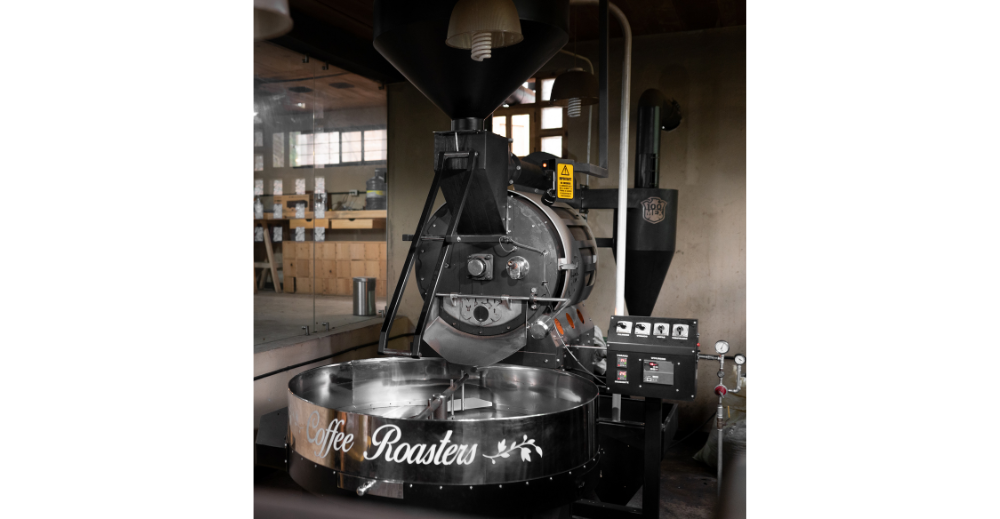
Drum roasting is a widely used method for roasting coffee beans. This technique of roast involves placing the beans inside a cylindrical chamber called a drum. The drum is then rotated, and the beans are evenly roasted using heat sources such as an open flame, electricity, gas, or wood.
As the drum rotates, the beans are uniformly exposed to the heat source, ensuring they are roasted on all sides. This drum and method is effective in producing consistent and even roasts. Regularly turning the drum is crucial to guaranteeing that all beans receive the same heat level, preventing any from being over or under-roasted.
Drum roasting is popular because it allows for precise control over the roasting method, resulting in a high-quality coffee product. While other methods are available, drum roasting remains a preferred method for many roasters due to its reliability and consistent results.
Air Roaster or Fluid Bed Roaster
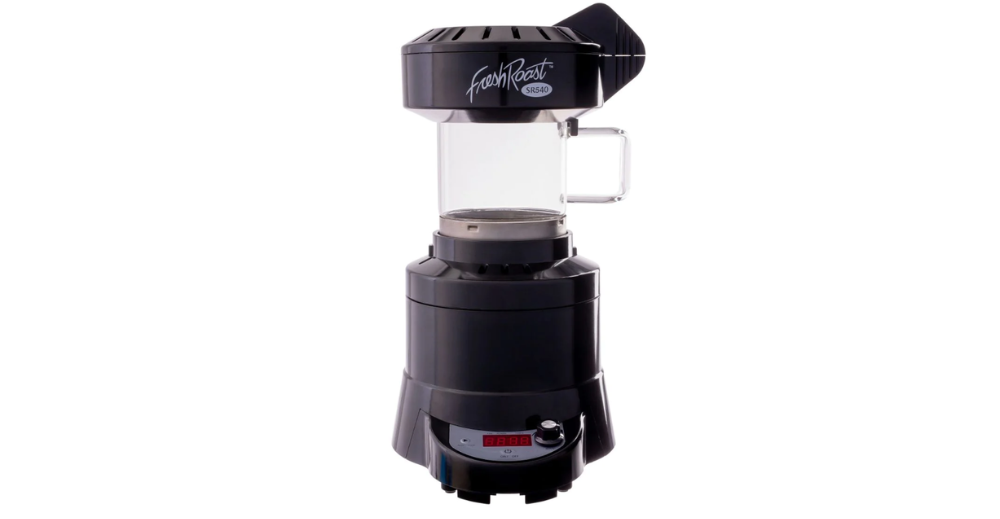
Fluid-bed roasting is a popular hot-air method to roast coffee beans. This involves pushing hot air through a bed of coffee beans, causing them to circulate and roast evenly. This produces a bright and vibrant flavor profile.
One of the critical advantages of fluid-bed roasters over other types is their cost-effectiveness. Fluid-bed are generally less expensive to operate than drum roasters, making them popular for small coffee businesses and home roasting.
These roasters are also known for their efficiency. The hot air allows for faster and more consistent roasting, allowing you to save time and energy.
Selecting the Right Machine
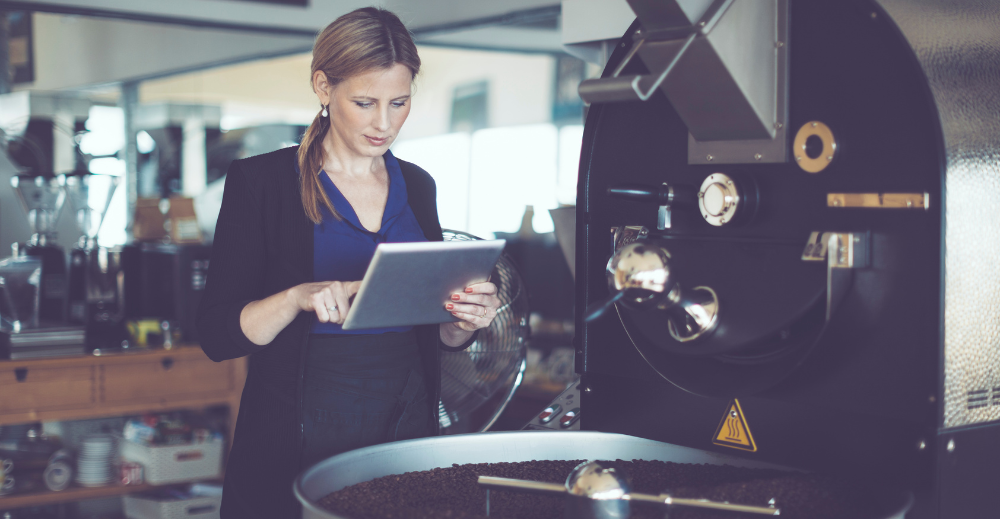
While most machines from major companies can roast a good amount of coffee, some have features that makes it challenging to achieve top-quality, even with skillful hands.
Such features include thin, single-walled drums, slow gas valves, poor resolution valves at low temperature settings, excessive insulation around the drum, slow or poorly positioned probes, and limited control of roasts after the first crack.
Asking those with experience with all major brands is essential when seeking advice on which machine to buy. Experts that have only used one or two machines tend to favor them and lack perspective about other options. It's also important to avoid relying on the advice of sales associates. They are often biased and misinformed about competing brands.
Factors to Think About
You must consider some factors that could impact the success of your business. These are: the standard of your coffee, and the effectiveness of your operations when choosing the best equipment for your business. You can gain a better understanding of the valuable roasters out there. This includes their advantages as well as their disadvantages, and how they match with your company's objectives.
-
Budget
Keep your spending limit in mind while making an machinery purchase. It would be beneficial to get a larger roaster than you formerly believed you needed, if your budget allows it. In the case of most roasters, many of them regret buying a machine they outgrow too rapidly rather than regretting buying a larger equipment. The goals and needs you have must be prioritized according to your budget after assessing the initial costs.
-
Capacity
Choosing the right machine size requires knowing how much coffee you'll be making each week for the next two years. This includes the projected amount of weekly production during the next two years. Get a big roaster that can crank out that much in 25 hours. Remember that a bean loses 14% to 20% of its weight during roasting, so a machine's actual capacity may be lower than its quoted capacity.
-
Reliability
Reputable brands produce products that are backed by strong warranties and customer service. This gives you confidence in your purchase. To have a better understanding of a machine's reliability, it is a good idea to consult other users. Most roasters are eager to share their expertise, including any difficulties they may have encountered. When it comes to the quality of the roasts they create, roasters are less objective than when it comes to the dependability of their machinery.
-
User Interface
Most might take this for granted, but a well-designed user interface is crucial when purchasing a roaster. Especially if you intend to use it for many hours each week. Quality, consistency, comfort, and ease of use of the roast can all be affected by the user interface. The use of machinery that requires you to press an up or down button to adjust the gas settings might be time-consuming and aggravating. It's simpler and more enjoyable to handle a device with an analog gas dial or a smart touchscreen.
-
Gas-Powered or Electric Coffee Roaster Machine
The machines' electric power supply and the computer control that comes with the item are factors that need to be thought of. Top chefs favor gas-powered machine because using a gas stove is safer and less expensive than using an electric one when cooking. Gaining control of it is vital because even small adjustments during roasting have a big impact.
Additional Features and Accessories
The extra features and accessories that can enhance your experience are other factors that you need to think about. The roasting will be more successful if your setup includes the appropriate elements and extras.
-
Cooling Trays - cool roasted bean rapidly to preserve their ideal flavor and aroma. Some machines have built-in trays, while others require a separate cooling system.
-
Chaff Collection Systems - Chaff is the thin, papery skin covering the bean that separates as it expands and dries. If not managed properly, it can be hazardous in a roastery. Chaff collection systems prevent chaff accumulation and keep the roastery clean.
-
Software Integration - offers greater roast control and the ability to create, save, and replicate profiles. Some machines come with exclusive or third-party software, which should be evaluated for ease of use, data logging, and connectivity (USB, Bluetooth, Wi-Fi).
-
Smoke Suppression Systems - Smoke from roasting can be an issue for companies in crowded areas or governed by strict local regulations. Smoke suppression systems can help mitigate this problem by filtering smoke and particles and collecting them through ventilation. These systems often include air filters and may have afterburners to eliminate any remaining smoke.
How Much Does a Commercial Coffee Roaster Cost?

Commercial brewing unit can cost anywhere from $250 to $300. These machines are drum-based that weigh around six pounds. This drum size can roast about six pounds of bean per minute.
A small tabletop model of acommercial machine with a capacity of around 1-5 pounds per batch may cost between $3,000 to $7,000. Medium-sized machinery with a capacity of 10-30 pounds per batch typically range from $10,000 to $30,000, while larger machines with 30 pounds or more per batch can cost anywhere from $30,000 to $100,000.
Factors Affecting the Cost
-
The size and capacity of the machine significantly impact the cost. Larger machinery with higher capabilities tend to be more expensive than smaller ones.
-
The features and integrated technology can also affect the cost. A machine with advanced features such as computerized controls, smoke abatement systems, and data logging capabilities is more expensive.
-
Established and reputable brands may charge higher prices due to their reliability, performance, and customer support.
-
Electric ones are less expensive upfront but may have higher operating costs, while gas machinery may have higher upfront costs but lower operating costs.
Is Coffee Roasting Profitable?
Can coffee roasters produce profit? Well, roasting coffee can be lucrative and an excellent opportunity to grow coffee businesses. Most of these problems are related to the initial cost of building machinery which can reach $100,000.
Another factor that can impact profitability is the quality of the bean used for roasting. Higher-grade coffee beans can lead to a better-tasting final product. Sourcing coffee beans from farmers or cooperatives can help reduce costs and improve the sustainability of the supply chain.
The pricing of the final product is also critical for the profitability of coffee roasting. When setting the price of coffee, roasters should consider the production costs, administrative costs, and the cost of similar products on the market.
Best Coffee Roasting Machine
We've chosen simple brands and models that allow you to prepare your bean to your roast level. We chose machinery with enhanced features and modern technology for experts to handle huge volumes. Our top picks are durable and offer an excellent experience for even the most sensitive coffee enthusiast.
-
An automatic coffee brewer that offers top-of-the-line features to ensure consistent roasting results.
-
This brewer can work automatically with pre-programmed roasting profiles, saving time and effort.
-
Control the roast procedure with programmable temperature presets, alarm features, and manual controls.
-
This machine also features a sampler spoon and sight window for easy monitoring and consistent quality.

-
A Durable and adaptable drum roast machine ideal for medium-sized businesses.
-
It provides even heat distribution and precise heat control for various roast styles.
-
The GR5 provides a seamless and efficient experience because of its solid stainless-steel body, intuitive control board, built-in cooling tray, and chaff collection mechanism.
-
It is compatible with gas and electric heating sources and can generate 5kg per pack.
Santoker R3 Manual Coffee Roaster
-
A manual and award-winning machine ideal for small coffee businesses.
-
These are available in gas and electric type.
-
The capacity is 500g to 3200g per drum, allowing you to control the roasting process with a manual control panel.
-
Santoker R3 delivers consistent results in a valuable and efficient package, with its high-grade motors to control the drum, hot air volume, cooling tray, and cooling mixing.
-
This is an excellent choice for individuals with a roasting profile or roasting curve, the machine can roast according to it automatically.
Kaleido Sniper M10 Electric Coffee Roaster
-
Coffee roast process has been made easier with the Electric Heating System of this coffee brewer that can instantly heat up to 500°C.
-
An independent cooling system that can quickly cool within minutes.
-
A patented, horizontal sampler allows for easy picking up of beans and monitoring the roasting effect, with an optimal capacity of 500-1000g per single roast, up to a maximum of 1200g.
-
Designed to minimize smoke emissions, this coffee brewer has a high-speed drum and built-in smoke extraction system that enables high RPM and low smoke emission.
Final Considerations
Quality machines are essential for long-term success in the coffee industry. A suitable machine will be a solid basis for increasing your company's sales. When choosing, determine your budget and list your needs according to your priority.
Seek advice from an experienced roasters on reliability and service but be careful with recommendations on quality unless they are based on extensive expertise with several roaster types. Before making a decision, try to work with a specific type.
We hope this guide has provided valuable insights and information to help you select the best machine for your business. Now that you've prepared yourself with the necessary knowledge, it's time to look into our carefully selected high-quality coffee roasters. Browse our Commercial Coffee Roasters and start your journey to roasting excellence today!


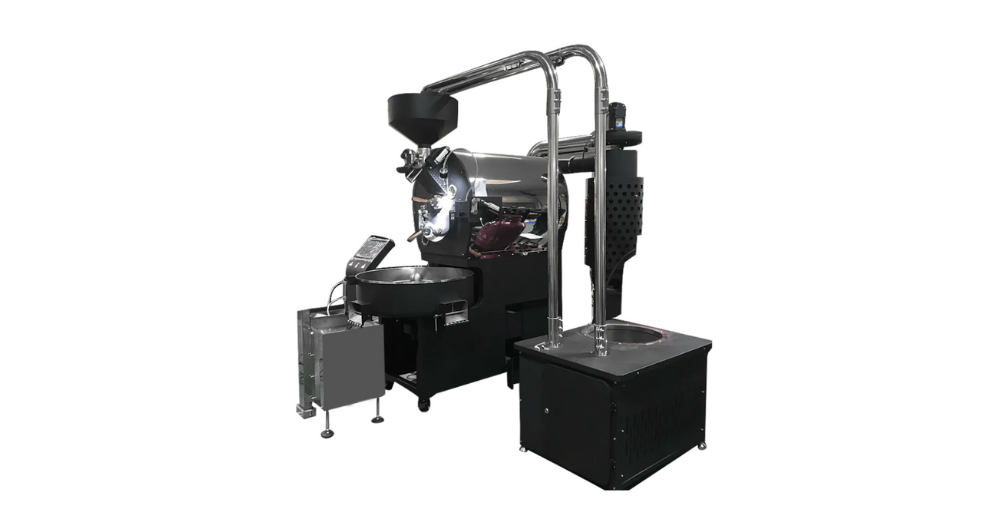
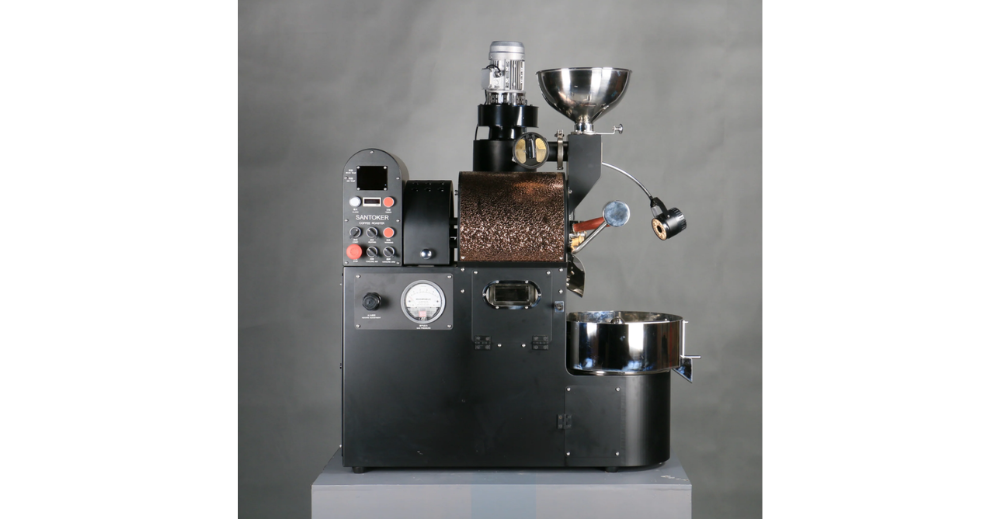
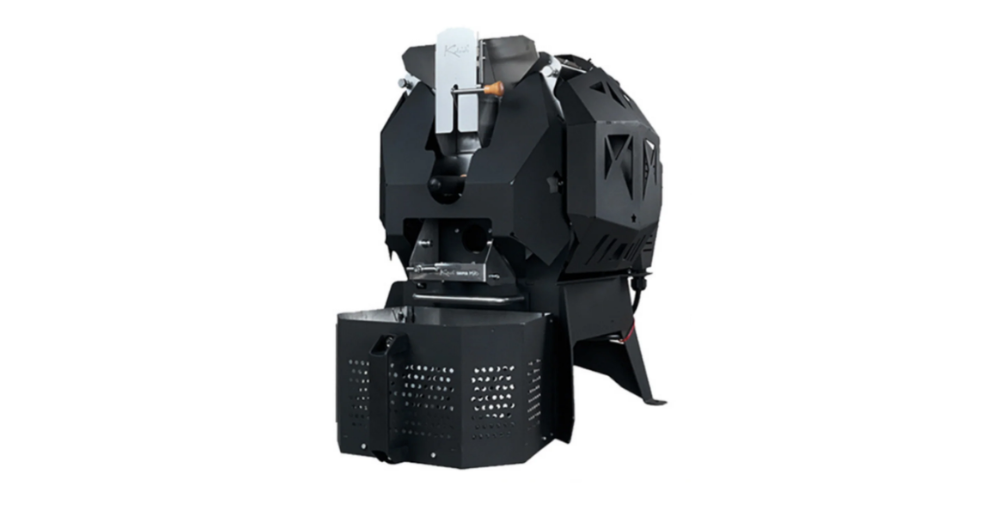



Leave a comment